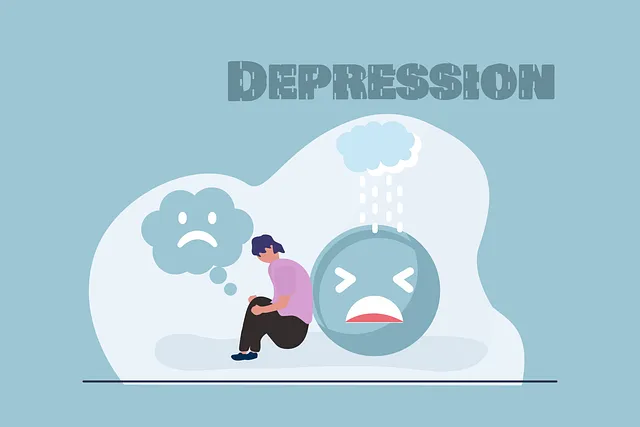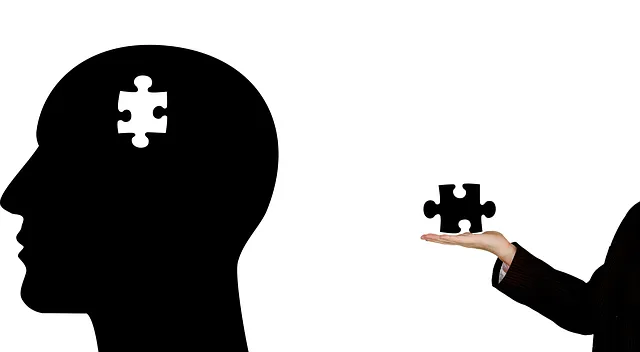Boulder Kaiser Permanente offers comprehensive Boulder Kaiser Permanente mental health coverage with specialized facilitators who guide groups through evidence-based practices, fostering resilience and emotional healing. Using techniques like mindfulness meditation, active listening, and structured activities, these facilitators create safe spaces for vulnerable populations to connect, share experiences, build empathy, and develop coping mechanisms in a supportive environment. The program's success is measured through journaling exercises and ongoing evaluations, ensuring the group therapy environment remains tailored to enhance mental wellness.
Mental wellness group facilitation plays a pivotal role in enhancing collective well-being. This article explores proven techniques for effective group therapy sessions, focusing on strategies to create supportive environments, foster engaging communications, and measure progress—essential aspects of successful mental healthcare. We also delve into the unique benefits of Boulder Kaiser Permanente’s mental health coverage, offering comprehensive insights for those seeking holistic wellness solutions.
- Understanding Mental Wellness Group Facilitation
- Boulder Kaiser Permanente Mental Health Coverage: An Overview
- Building a Supportive Environment for Group Sessions
- Effective Communication and Engagement Techniques
- Measuring Success and Tracking Progress in Group Therapy
Understanding Mental Wellness Group Facilitation

Mental wellness group facilitation is a specialized skill that involves guiding and supporting individuals through shared experiences aimed at enhancing mental health and building resilience. In settings like Boulder’s Kaiser Permanente, where mental health coverage is accessible, facilitators play a crucial role in creating safe spaces for vulnerable populations to connect, share their stories, and learn from one another. These groups offer more than just a chance to talk; they foster a sense of belonging and empower individuals to navigate challenges with increased coping mechanisms and social support.
Effective facilitation techniques blend crisis intervention guidance with evidence-based practices like mindfulness meditation. By facilitating open dialogue, active listening, and structured activities, facilitators create an environment conducive to emotional processing and healing. Resilience building is a central objective, equipping group members with tools to cope with stress, manage symptoms, and adapt positively to life’s uncertainties.
Boulder Kaiser Permanente Mental Health Coverage: An Overview

Boulder Kaiser Permanente offers a comprehensive mental health coverage package designed to support individuals in their journey towards better mental well-being. Their services cater to a wide range of needs, from routine therapy sessions to more specialized treatments for severe conditions. The organization’s commitment to mental health is evident through its integrated approach, aligning with the latest evidence-based practices and advancements in the field.
This coverage includes various therapeutic interventions, such as individual counseling, group therapy, and specialized programs addressing trauma and substance abuse. Additionally, Kaiser Permanente Boulder prioritizes prevention and early intervention strategies, which are crucial components of effective mental health management. They also facilitate seamless referrals to community resources, ensuring that patients have access to holistic care tailored to their unique circumstances. The integration of these services within a managed care setting promotes continuity of care while emphasizing the importance of risk management planning for mental health professionals, as well as advocacy through mental health policy analysis and awareness of available trauma support services.
Building a Supportive Environment for Group Sessions

Creating a safe and supportive environment is paramount for successful mental wellness group facilitation. Facilitators at Boulder Kaiser Permanente’s mental health coverage programs understand that each individual brings unique experiences and challenges, so fostering an inclusive atmosphere is key. This involves setting clear boundaries, ensuring confidentiality, and creating ground rules that emphasize respect, active listening, and non-judgmental attitudes. By establishing these foundations, participants feel more comfortable sharing their stories and engaging in open discussions.
Effective strategies for empathy building play a crucial role in this process. Encouraging active participation through icebreakers and interactive activities helps group members connect on a personal level. Additionally, the Community Outreach Program Implementation initiative at Kaiser Permanente promotes diverse representation, ensuring various perspectives are heard. Together, these efforts contribute to Mental Illness Stigma Reduction Efforts, allowing individuals to find support, understanding, and shared experiences within the group setting.
Effective Communication and Engagement Techniques

Effective communication is a cornerstone of successful group facilitation, especially when addressing mental wellness. Facilitators at Boulder Kaiser Permanente’s mental health coverage programs employ active listening techniques to ensure every participant feels heard and understood. This involves reflecting on and paraphrasing individuals’ experiences, fostering an environment where vulnerability can flourish without judgment. By validating emotions and sharing relevant examples from their own journey, facilitators build empathy, strengthening the therapeutic bond within the group.
Engagement is another key aspect of these facilitation techniques. Using interactive exercises, storytelling, and open-ended discussions encourages active participation. This not only enhances learning but also promotes a sense of belonging within the community. The implementation of community outreach program initiatives further strengthens connections, providing participants with diverse perspectives and reinforcing the concept that inner strength development is an ongoing journey shared collectively.
Measuring Success and Tracking Progress in Group Therapy

Measuring success and tracking progress are essential components of group therapy, allowing facilitators to assess the effectiveness of their techniques and tailor support accordingly. At Boulder Kaiser Permanente mental health coverage centers, professionals employ various methods to evaluate the group’s collective and individual growth. One widely used tool is the Mental Wellness Journaling Exercise Guidance, which encourages members to reflect on their experiences and track their progress over time. This practice not only fosters self-awareness but also provides tangible evidence of coping Skills Development.
Additionally, facilitators may incorporate Compassion Cultivation Practices into sessions, creating a safe space for participants to explore empathy and kindness towards themselves and others. By regularly gauging the group’s emotional well-being and progress through these exercises, therapists can identify areas that require further attention and adapt their facilitation techniques accordingly. This ongoing evaluation ensures that the group therapy environment remains supportive and effective in enhancing mental wellness.
Mental wellness group facilitation is a powerful tool, as evidenced by successful initiatives like Boulder Kaiser Permanente’s mental health coverage programs. By fostering supportive environments, employing effective communication techniques, and tracking progress through measurable outcomes, facilitators can create transformative group sessions. This holistic approach ensures that individuals receive the support they need to navigate their mental health journeys effectively, ultimately enhancing overall well-being in communities such as Boulder.






